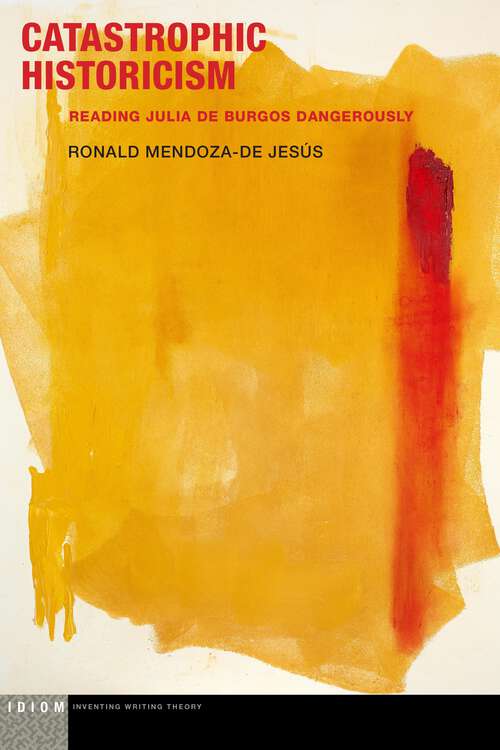
Catastrophic Historicism: Reading Julia de Burgos Dangerously (Idiom: Inventing Writing Theory)
Criticism, Philosophy
Synthetic audio, Automated braille
Summary
Catastrophic Historicism unsettles the historicist constitution of Julia de Burgos (1914–53), Puerto Rico’s most iconic writer—a critical task that necessitates redefining the concept of historicism. Through readings of Aristotle, Walter Benjamin, Jacques Derrida, Werner Hamacher, and Frank Ankersmit, Mendoza-de Jesús… shows that historicism grounds historical objectivity in the historian’s capacity to compose totalizing narratives that domesticate the contingency of the past. While critiques of historicism as a realism leave untouched the sovereignty of the historian, the book insists that reading the text of history requires an attunement to danger—a modality that interrupts historicism by infusing the past with a contingency that evades total appropriation.After desedimenting the monumental tradition that has reduced de Burgos to a totemic figure, Catastrophic Historicism reads the poet’s first collection, Poema en 20 surcos (1938). Mendoza-de Jesús argues that the historicity of Poema crystallizes in the lyrical speaker’s self-institution as an embodied ipseity, which requires producing racialized/gendered allegorical figures—the bearers of an abject flesh—that lack any ontological resistance to modern alienation. Rather than treating de Burgos’s poetics of selfhood as the ideal image of Puerto Rican sovereignty, Mendoza-de Jesús endangers this idealization by drawing attention to the abjection that sustains our attachments to ipseity as the form of a truly sovereign life. In this way, Catastrophic Historicism not only resets the terms of ongoing critiques of historicism in the humanities—it also intervenes in Puerto Rican historicity for the sake of its transformation.